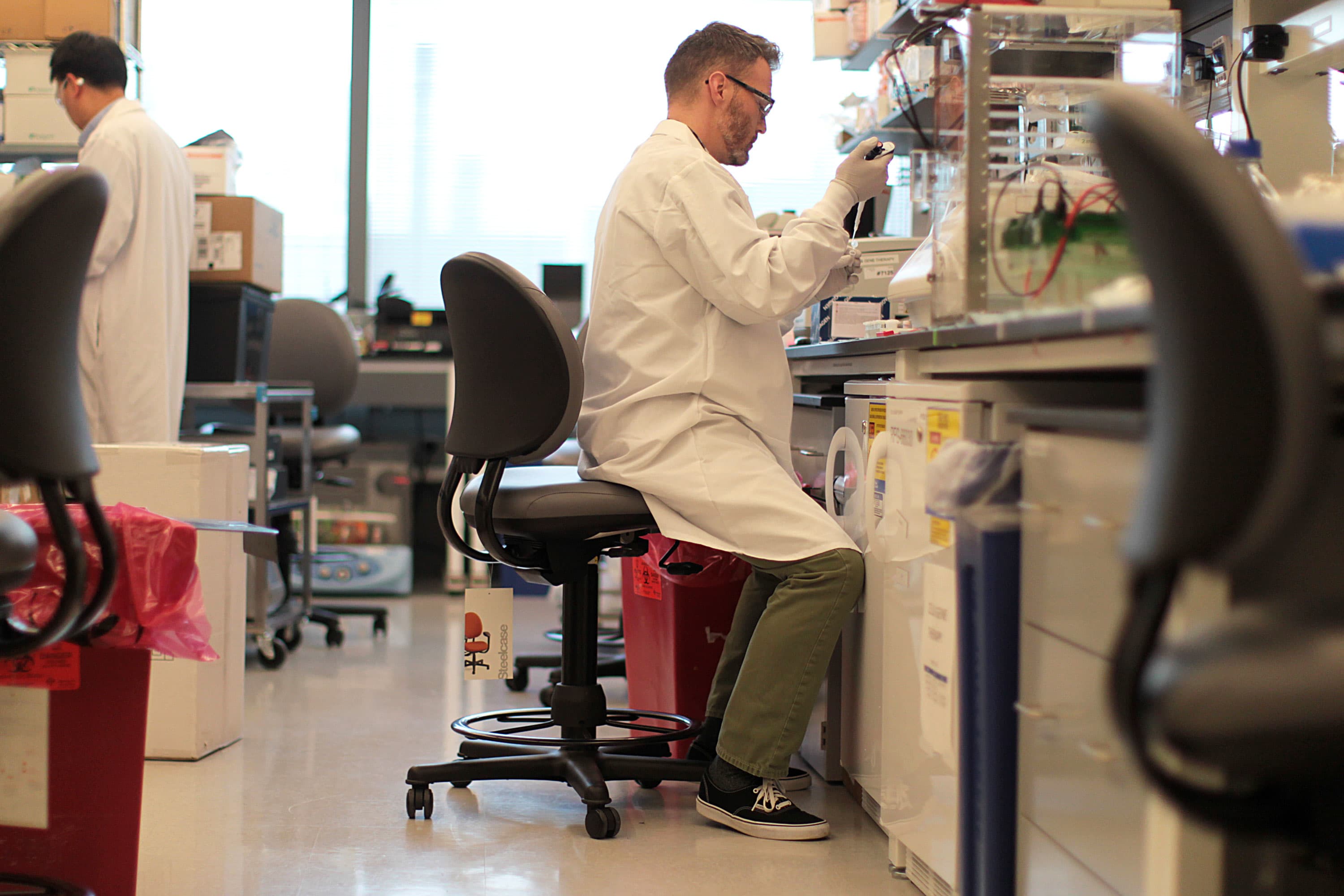Take a look at some of the biggest movers in the premarket:
Biogen (BIIB) – The drugmaker reported quarterly earnings of $10.26 per share, compared to a consensus estimate of $8.03 a share. Revenue came in above estimates as well, helped by about $100 million in accelerated sales due to the Covid-19 pandemic. Biogen also slightly cut its 2020 full-year revenue outlook.
Pfizer (PFE) – Pfizer and the government struck a deal in which the company would provide 100 million doses of a Covid-19 vaccine being developed with partner BioNTech (BNTX), with an option for the government to acquire an additional 500 million doses. The vaccine would be free for Americans.
Thermo Fisher Scientific (TMO) – The scientific equipment maker reported quarterly earnings of $3.89 per share, beating the consensus estimate of $3.42 a share. Revenue also came in above estimates, boosted by demand for Covid-19 related products.
KeyCorp (KEY) – The bank beat estimates by 9 cents a share, with quarterly earnings of 17 cents per share. Revenue beat Street forecasts as well. Earnings were down from a year ago as KeyCorp’s provision for credit losses rose, but the bank said its sequential quarterly revenue rose 17% due to strength in fees.
Best Buy (BBY) – Best Buy said its overall sales are up about 15% since it began reopening its stores in mid-June. The electronics store chain’s online sales have more than tripled during the current quarter through July 18.
United Airlines (UAL) – United Airlines reported a quarterly loss of $9.31 per share, wider than the loss of $9.02 a share that analysts had been forecasting. Revenue was above estimates. United said it burned through about $40 million per day in cash, although it expects that number to drop to about $25 million this quarter.
Spotify (SPOT) – The music streaming service has struck a new long term licensing deal with Vivendi’s Universal Music Group. The deal could result in Spotify making money from the music companies by providing marketing, data, and analytics information.
Snap (SNAP) – Snap matched Wall Street forecasts with a quarterly loss of 9 cents per share, while the Snapchat parent’s revenue beat estimates. Daily active users rose 17% compared to a year earlier, below Street forecasts, although average revenue per user was better than expected.
Texas Instruments (TXN) – Texas Instruments beat estimates by 60 cents a share, with quarterly earnings of $1.48 per share. The chipmaker’s revenue was also above forecasts. Texas Instruments forecast better-than-expected revenue for the current quarter, as demand for its wide array of chips rebounds from the effects of the pandemic.
Nasdaq (NDAQ) – Nasdaq earned $1.54 per share for its latest quarter, beating the consensus estimate of $1.45 a share. Revenue was above estimates as well. The exchange operator saw revenue increase across its various units, helped by record trading volume.
Interactive Brokers (IBKR) – Interactive Brokers beat estimates by 9 cents a share, with quarterly profit of 40 cents per share. The company’s revenue came in well above Street forecasts, boosted in part by strong growth in trading volume and commission revenue.
iRobot (IRBT) – iRobot reported quarterly earnings of $1.06 per share, significantly higher than the 29 cents a share consensus estimate. Revenue was also above estimates. Consumers staying at home due to the pandemic helped fuel stronger sales of the company’s Roomba automatic vacuum cleaner. The company also raised its revenue forecast.
Intuitive Surgical (ISRG) – Intuitive Surgical more than doubled Wall Street forecasts with quarterly earnings of $1.11 per share, with the maker of surgical products also seeing much-better-than-expected revenue. Profit was, however, sharply lower compared to a year earlier as surgical procedures slowed during the pandemic.
Capital One (COF) – The bank reported quarterly earnings of $1.61 per share, smaller than forecasts of a $1.68 per share loss. Revenue was below Wall Street estimates. Capital One boosted its provision for credit losses to $4.25 billion from $1.34 billion in the year-earlier period, and saw its net interest margin fall to 5.78% from 6.8% a year ago.
Macy’s (M), Kohl’s (KSS) – UBS downgraded both retailers to “sell” from “neutral,” saying brands can no longer depend on malls or department stores to drive customer traffic. UBS also said the market does not fully appreciate how much Covid-19 will permanently disrupt the retail landscape.
